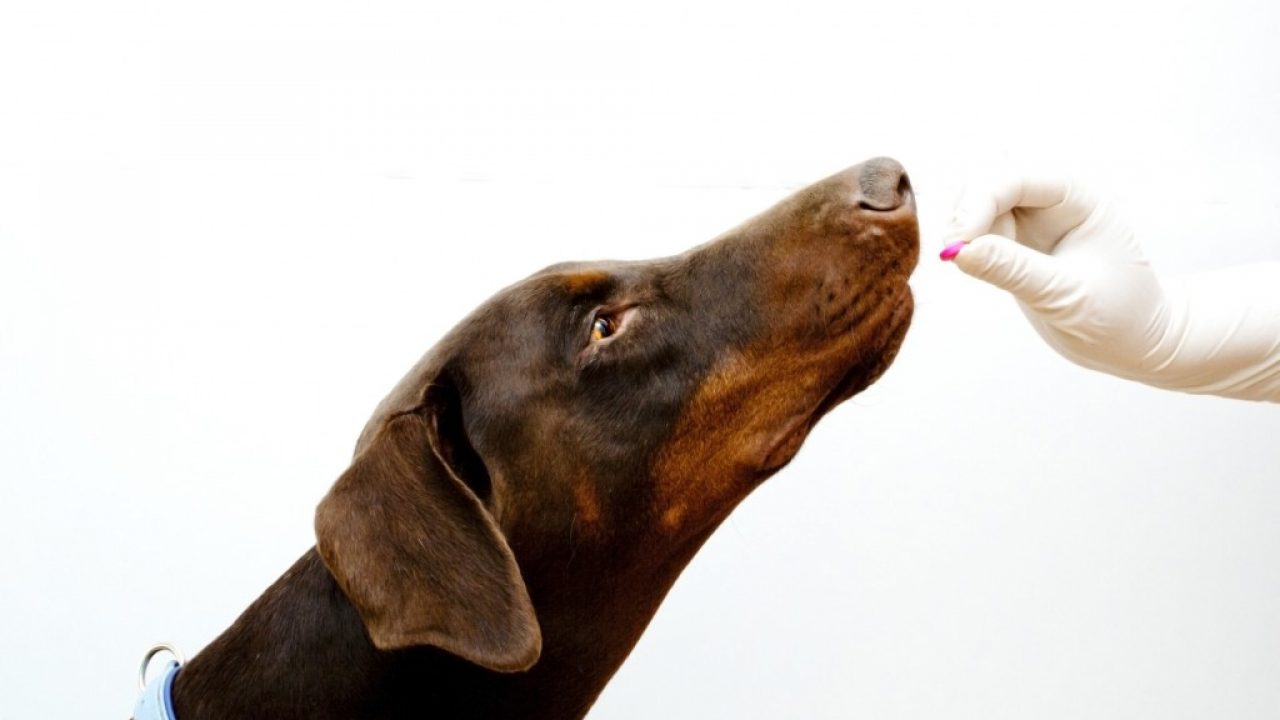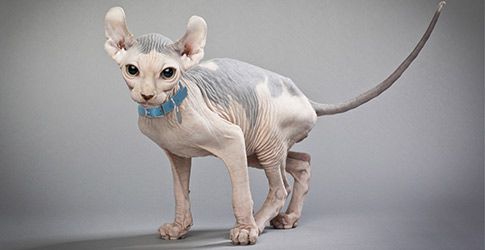Humans catch a cold all the time. It is a yearly virus that goes around and you likely catch it during the winter months. If you are unlucky, you can also catch the flu and be in bed sick for several days. While there is a flu vaccination you can get, you cannot get protected against colds.
Connect with a verified veterinarian in minutes. Licensed vets are available 24/7 to answer your questions. No need to worry about your furry family member.
If you have a feline friend, you may be wondering whether they can catch the cold or flu from you. This is quite a common question and you are not alone. The simple answer to this question is yes, cats can get the flu. But we are going to have to go into some more detail so that you can understand what your furry friend has and how you can help them during this time. So, let’s break it down and look at the facts.
Can Cats get a Cold or the Flu?
Sometimes, the internet can be a confusing place. There is a lot of information out there and although it is great everybody can access it, not everything you read is going to be true. We have spent a lot of time researching this topic so that you can have reliable information.
So, can your cat catch a cold or get the flu? The answer is your furry friend and beloved companion can get cat flu. This should not be mixed up with the same cold or flu that humans get. It is a different virus. Sure, there have been cases of cats catching H1N1 from humans. But they cannot catch the same flu virus or cold virus that is floating around during the winter months. You do not have to keep away from your pet when you are sick. They will simply be unaffected by your symptoms. Just like your cat cannot catch a human cold or flu, you cannot be affected by cat flu. Cat flu is also called feline viral upper respiratory disease.
There are a few types of feline viral upper respiratory diseases that your cat can get. This includes feline calicvirus and feline herpesvirus. These are the most common and they are both contagious and what we think about as the flu. They are often found in shelter and catteries and they spread from cat to cat pretty easily. There can also be feline viral upper respiratory diseases that develop because of bacteria. In particular, this includes chlamydia and Bordetella.
What are the Symptoms of Feline Viral Upper Respiratory Disease?
Generally, you are going to recognize if your cat has feline viral upper respiratory disease. They will exhibit certain symptoms that you should notice and that will differ from their normal behavior. Indeed, they are similar to the symptoms that humans get when they have the cold.
Some symptoms you will notice include:
- A runny and congested nose
- Sneezing
- A fever
- Drooling
- Red and watery eyes
- Lethargic and not as energetic
- Sleeping more
- Muscle and joint pain
- Breathing troubles
- Loss of appetite and not drinking water
If your cat is exhibiting any of the symptoms we have listed, the best thing you can do is contact your veterinarian. They will be able to give you advice on whether your cat has feline viral upper respiratory disease or another illness that should be treated. Arrange an appointment as soon as you notice any of these symptoms.
This is going to be the best option for your cat and put your mind at ease.

Review symptoms, medications & behavior to keep your pets healthy with a Vet Online in just minutes.
Ask a Vet Live NowHow Does Cat Flu Spread?
It is often the case that some cats are carriers of feline viral upper respiratory disease. They are asymptomatic, which means that they do not exhibit any of the symptoms we have just listed. They can spread it to other cats through sneezing, eye discharge or by saliva.
Any cat can get feline viral upper respiratory disease. But kittens when they are young are at high risk from cat flu. In addition, if you have a senior cat or they have a weakened immune system, this can mean that they may be more at risk from the disease. In addition, it is thought that certain cat breeds are more susceptible to catching feline viral upper respiratory disease. This includes Persians and breeds that have a flat nose and face.
Is there Treatment Available for Cats with the Flu?
Unfortunately, there is no straight forward treatment for cats that develop feline viral upper respiratory disease. If your cat is healthy, it is likely that their immune system can fight the flu. In addition, older cats that are fit and healthy often are able to build up some resistance throughout their life. If you have a young cat that has had feline viral upper respiratory disease, it may come back later on. In some cats, this disease can lie dormant for a while. This means that the symptoms can arise again at some point. It may be a result of when their immune system is fighting another illness or if they have a poor diet. If you suspect that your furry friend has feline viral upper respiratory disease, it is best to take them to a veterinarian as soon as possible.
There may be some medications that they can administer to help your cat with some symptoms. For example, this can include antibiotics for bacterial infections that develop.
There are a few things you can do to make sure your cat feels more comfortable when they are sick. For example, you can use a saline solution on a cloth to clean their eyes and nose. This may help them to feel better. In addition, make sure that they have comfortable and clean bedding. This will allow your cat to get some quality sleep so they can fight the illness. Make sure that you wash the bedding regularly to avoid the infection spreading if you have other cats.
In addition, you want to make sure that your cat stays hydrated and gets the food they need to stay healthy. This is going to help them recover faster. Always keep fresh water nearby so your furry friend can drink. They may not want to eat a lot and they can lose their sense of smell. To encourage them to eat, serve them some of their favorite foods, as well as delicious warm chicken or fresh fish. Within a few weeks, healthy cats will start to improve and get back to their usual self. Give them time and you will notice that they become happy again after suffering from this feline viral upper respiratory disease. When your cat is well again, make sure they have a good healthy diet to keep their immune system strong.
Are there Ways to Prevent Feline Viral Upper Respiratory Disease?
All cat owners want to do the best for their furry friends. This includes trying to prevent them from getting sick. Indeed, the best way you can protect your cat from feline viral upper respiratory disease is by getting them vaccinated. There is a vaccination that is going to make sure that they do not get the flu.
It is important to note that the flu vaccination is a yearly one. In other words, you have got to make sure they get their shots every year to make sure that it is effectively. You may have to pay for this if your pet insurance policy does not cover vaccinations. Cats are able to get this vaccination from when they are nine weeks and older. If your cat has already had feline viral upper respiratory disease, the vaccination may not be fully effective.
My Cat Has the Flu – Should I Keep Them Away from Other Cats?
If you suspect that your cat has feline viral upper respiratory disease and is demonstrating the symptoms, keep them away from other cats. The last thing you want to do is let your cat pass this flu onto others. You should isolate your furry friend in the house until their symptoms ease and they return to their normal selves.
If you are adopting a new cat, it is best to quarantine your new companion if you suspect they have feline viral upper respiratory disease. Again, this should be done until their symptoms subside. The best thing you can do when you bring a new cat into the household is have them vaccinated against feline viral upper respiratory disease. This is going to help your new cat, as well as the furry friends you already have at home.
Are There Long-Term Effects from the Cat Flu?
As we have previously mentioned, there is the possibility that your cat will become a carrier of feline viral upper respiratory disease. This means that it can flare up again in the future or they may pass on the disease to other cats. In particular, your furry friend might start to demonstrate runny eyes or nose again in the future. This can happen when your feline friend is stressed or upset. This could happen if you are moving house or taking them to the vets. There is the possibility that feline viral upper respiratory disease can permanently damage the nose. It can cause chronic rhinitis, which means that the nasal lining has become damaged. This can lead to having a lot of bacterial infections and a runny nose all the time. If you suspect this is the case, you should contact your veterinarian for advice. Your cat will definitely need antibiotics if they do develop infections.
Although rare, your cat could develop inflammation and soreness in the mouth on a regular basis. This can cause gingivitis. There is a chance that the feline viral upper respiratory disease is a contributing factor and not the only reason why your cat has this condition. Again, the best thing you can do is arrange an appointment at the vet. They are going to help you to control the condition and make sure that some of your cat’s discomfort can be relieved. We cannot stress enough how important it is to take your feline friend to the vet. If the feline viral upper respiratory disease is left untreated, there can be bad consequences. The disease may progress and lead to pneumonia. There is also the possibility that it can lead to blindness and eyesight troubles, as well as breathing difficulties in the long term.
How to Boost Your Cat’s Immune System
A good way to help your cat avoid feline viral upper respiratory disease is by making sure they have a strong immune system. There a few things you can do to boost your furry friend’s immune system. Cats should always be fed a healthy and well-balanced diet. This includes giving them foods that contain good amounts of protein and balanced fats and carbohydrates. In particular, choose foods that contain taurine, arginine and carnitine. In addition, fresh and clean water is important for hydration.
You also want to reduce any stress that exists in your cat’s life. If they are feeling unhappy and stressed, this can weaken their immune system. For example, your furry friend might like their own space and a clean environment. You also want to make sure that they are entertained when they are awake. In other words, buy your cat some fun toys and play with them. Then they will happily laze around and sleep all day.
You can always consider giving your cat supplements to help boost their immune system. There are a lot out there that can deliver the vitamins, minerals and antioxidants they need. While it is best to get these naturally through their diet, you can always supplement to some degree. It is always best to ask your veterinarian before you start a new supplement. This is going to make sure that it is healthy for your pet and that you are not just wasting your money. Always read the instructions and make sure you follow them to give your cat the right amount they need.
Connect with a verified veterinarian in minutes. Licensed vets are available 24/7 to answer your questions. No need to worry about your furry family member.

Kyoko
Kyoko is from a family of 3 and moved to New York with her parents and siblings when she was 13. Kyoko is fond of spending a great amount of time with pets, specifically her beagle Luna and cat Missy. Her boyfriend often complains that she spends too much time giving attention to their animals. Kyoko has written dozens of articles concerning pets and is aiming at owning a pet shop one day!
Review symptoms, medications & behavior to keep your pets healthy with a Vet Online in just minutes.
Ask a Vet Live Now



